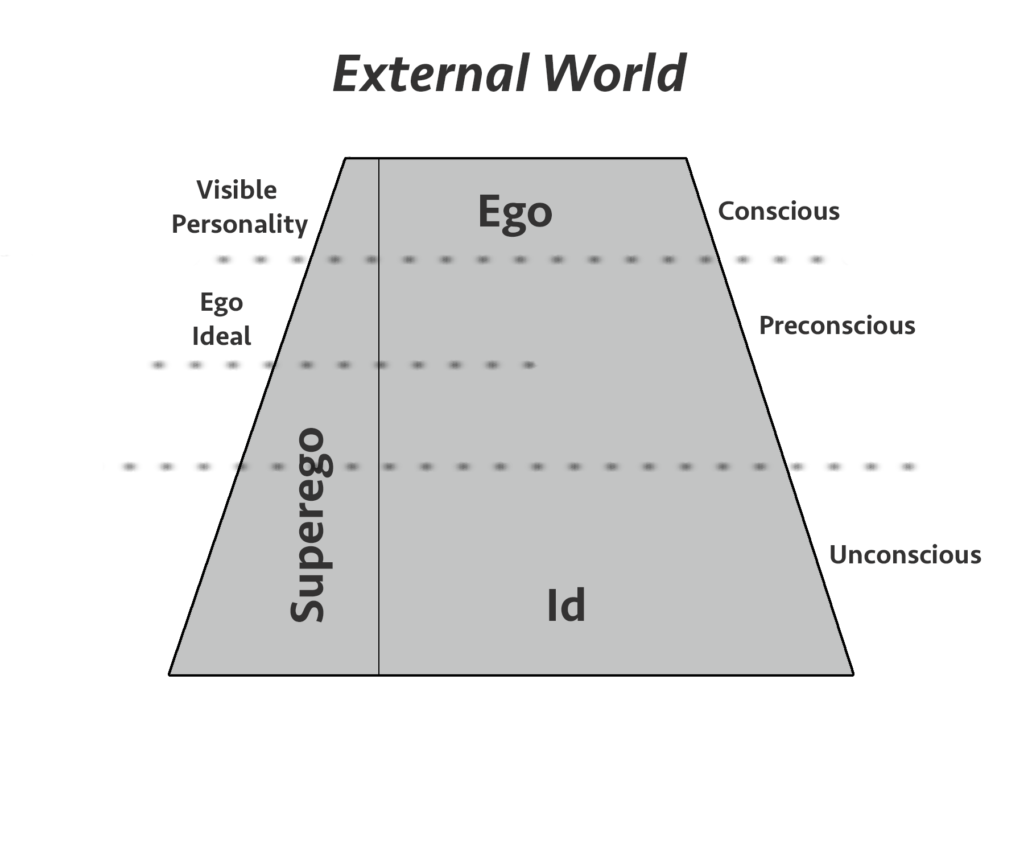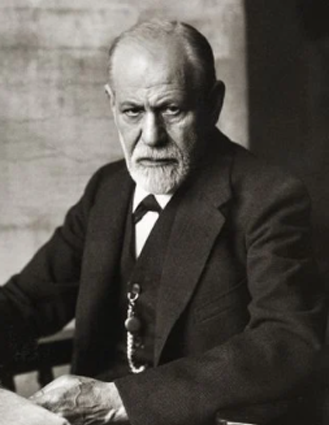|
|
According to Sigmund Freud (1856-1939), our psyche resembles an iceberg, with the area of primitive drives, the Id, lying hidden in the unconscious. The Ego interacts with conscious thoughts and regulates both the Id and the Superego – our critical judging voice.
The Id
The Id, is formed of innate, primitive instincts and impulses. It forms our irrational “pleasure principle” that every wishful impulse must be immediately gratified. The Id wants everything now and whispers to us to do what feels good. It also seeks fulfillment of our basic drives for food, comfort, warmth and sex. These drives ensure our survival. If we were solely controlled by the Id, the world would be chaotic beyond belief.
Unconscious Energy
The Id has a reservoir of unconscious energy, called Libido, for the entire psyche. It is completely self-serving, impulsive and totally unconscious. The Libido flows from life instincts and underlies our efforts to survive, as well as pleasure seeking and sexual desires.
The Ego
The Ego, which is controlled by the Superego, is sometimes called the Executive because it directs energies supplied by the Id. The Ego takes a realistic view and recognizes the “reality principle” which says that “we can’t always get what we want.” The Ego negotiates with the Id, trying to find reasonable ways to get what it wants without causing damage or terrible consequences. The Ego is the system of thinking, planning, problem solving and decisions.
The Superego
The Superego calls on us to follow a higher road. It imposes parental-like values and tells us what we should and should not do. The Superego is the judging force and the source of our conscious, guilt and shame. It acts as the censor for the thoughts and actions of the Ego.
Punishing Guilt
One part of the Superego, the conscious, reflects actions for which a person has been punished. When standards of the conscious are not met, you are punished internally by feelings of guilt. A second part of the Superego is the “Ego Ideal” and reflects all behavior one’s parents approved of or rewarded. The Ego Ideal is a source for goals and aspirations. When its standards are met, we feel gratified.
The Internalized Parent
The Superego acts as an internalized parent to keep behavior under control. In Freudian terms, a person with a weak Superego will become a delinquent, criminal or develop an antisocial personality. By contrast, an overly strict or harsh Superego will cause inhibition, rigidity or unbearable guilt.
Hidden Forces
Freud believed that our behavior often express unconscious or hidden forces. The unconscious holds vast amounts of conflicting forces and stores repressed memories and emotions, plus instinctual drives of the Id.
Modern scientists have found that the brain’s Limbic System does in fact, seem to trigger unconscious emotions and memories (DeDoux, 1996).
Preconscious to Awareness
Unconscious thoughts, feelings or urges are beyond our awareness, but they do sometimes slip into our behavior in disguise. The actions of the Ego and Superego are also unconscious but they also operate on two other levels of awareness at any given moment, including thoughts, feelings and perceptions, and memories.
The Preconscious contains these and can easily be brought to awareness. When you stop to think about an event that may have made you angry, you will be moving the memory from the Preconscious level of conscious awareness.
The Superego also travels between different levels of awareness, but Freud felt that the unconscious origins of many feelings cannot be easily brought to awareness.

This report is not a diagnosis. We hope this information can guide you toward improving your life.
Review our Knowledge Base or the links displayed on this page for similar and related topics.

